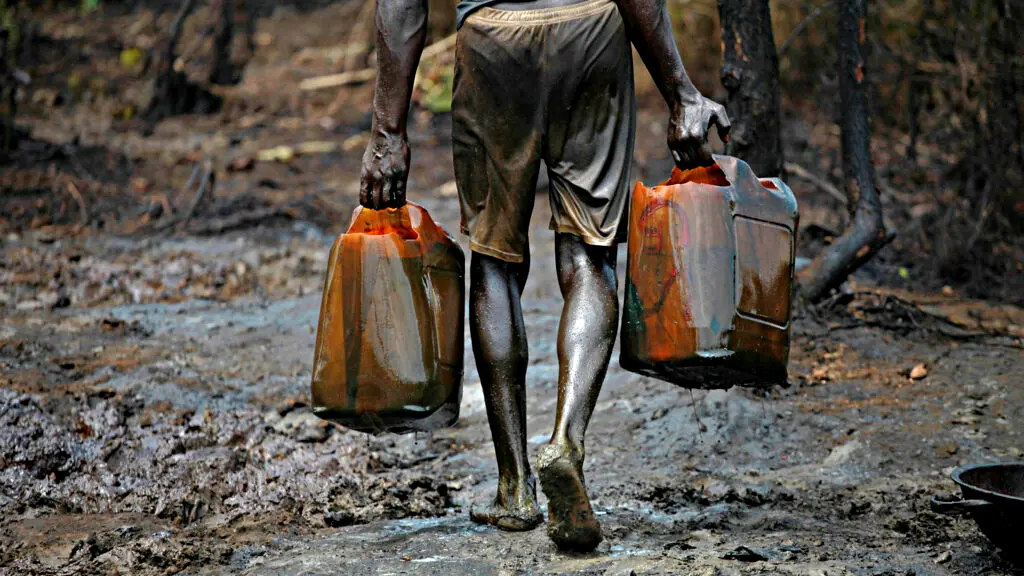- Have any questions?
- [email protected]
How Nigerian Oil Thieves Cost Nigeria $700 million Monthly

YMonitor Publishes Report on Local Government Performance in Kwara State
19 September 2022
Kwarans decry poor administration across Local Governments
26 September 2022By Salmon Adedapo
The Nation was shaken when NNPCL Group Managing Director Mele Kyari declared during a state briefing last week that the company lost 700 million dollars monthly to oil theft. A WHOPPING 700 MILLION DOLLARS MONTHLY!!!
As usual, the country’s new publications were awash with blame proportioning among politicians and statements from political and pressure leaders. As the frenzy dies down, it is essential to weigh the direness of oil theft on the country’s economy and security. The country has not only lost money that could have helped during these challenging times, but huge doubts have also been raised about the security of our seas. “How could such large vessels navigate our seas undetected?”, Where were the security officers protecting the waters?”, “How will Nigeria cope with the economic woes brought by these oil thefts?”.
We will examine the implications of these oil thefts from two lenses; economy and security.
How is oil theft affecting the Nigerian economy?
Six years ago, President Muhammad declared that he would take control of the oil portfolio rather than trust anyone else with the source of about 70% of Nigeria’s revenue. He vowed to trace and recover “mind-boggling” sums of money looted over the years. Unfortunately, the country’s president and Minister of Petroleum, Muhammad Buhari, seems to be “unlooking” as the looting crisis in the sector deepens.
The country’s oil production has declined drastically in the past three months. Nigeria produced 1.238 million Barrel Per Day (BPD) in June, while August’s production dropped to 972,394 BPD. The output is the lowest the nation has seen in the last 20 years. An analysis from the Premium Times established that the stolen oil is worth 10 billion dollars. The loss is more than 50% of the country’s external reserves. In addition, it is more than double Nigeria’s total revenue between January and April. At that time, Nigeria’s total revenue could not service its debt, so the country borrowed for everything else, Premium Times noted.
The oil market is at its highest since the global plunge in 2015. Yet, Africa’s most significant oil producer, led by President Muhammad Buhari as Minister of Petroleum, is not gaining from the proceeds. The continued oil theft has led to capital flight. Our economy is being pushed into a coma.
Are Nigerian Security Agencies culpable in oil theft?
During the state briefing last week, the Managing Director of NNPCL, Mele Kyari, fingered security agencies for their role in oil theft. It caused concerns when agencies empowered to promote government infrastructure are at the forefront of insecurity woes. Security operatives working with oil bunkers and thieves are no news as many have been caught in the act.
The efficiency of the country’s security infrastructure has been under scrutiny. It is baffling that decades after battling insurgents in the creeks of Niger Delta, the government does not have the adequate formation to intercept oil bunkering efficiently.
The event of oil bunkering in the country calls for a national emergency, and it is hoped the Federal government will arrest the situation quickly.
What can be done to mitigate oil theft?
Increased Technology
The technologies dispatched to monitor the pipelines should be increased and upgraded. Sophisticated technologies can help monitor crude flow in the channel and notify the appropriate authorities in the event of any abnormality.
Increased Corporate Social Responsibility
The fight against oil theft should not be left to the government. Private companies can engage in CSRs to encourage host communities to act as agents against oil thieves.
International Cooperation
Stolen oils are sometimes sold abroad. The Nigerian government should broker deals with countries where stolen oils are suspected to be sold, thus improving deterrent.

